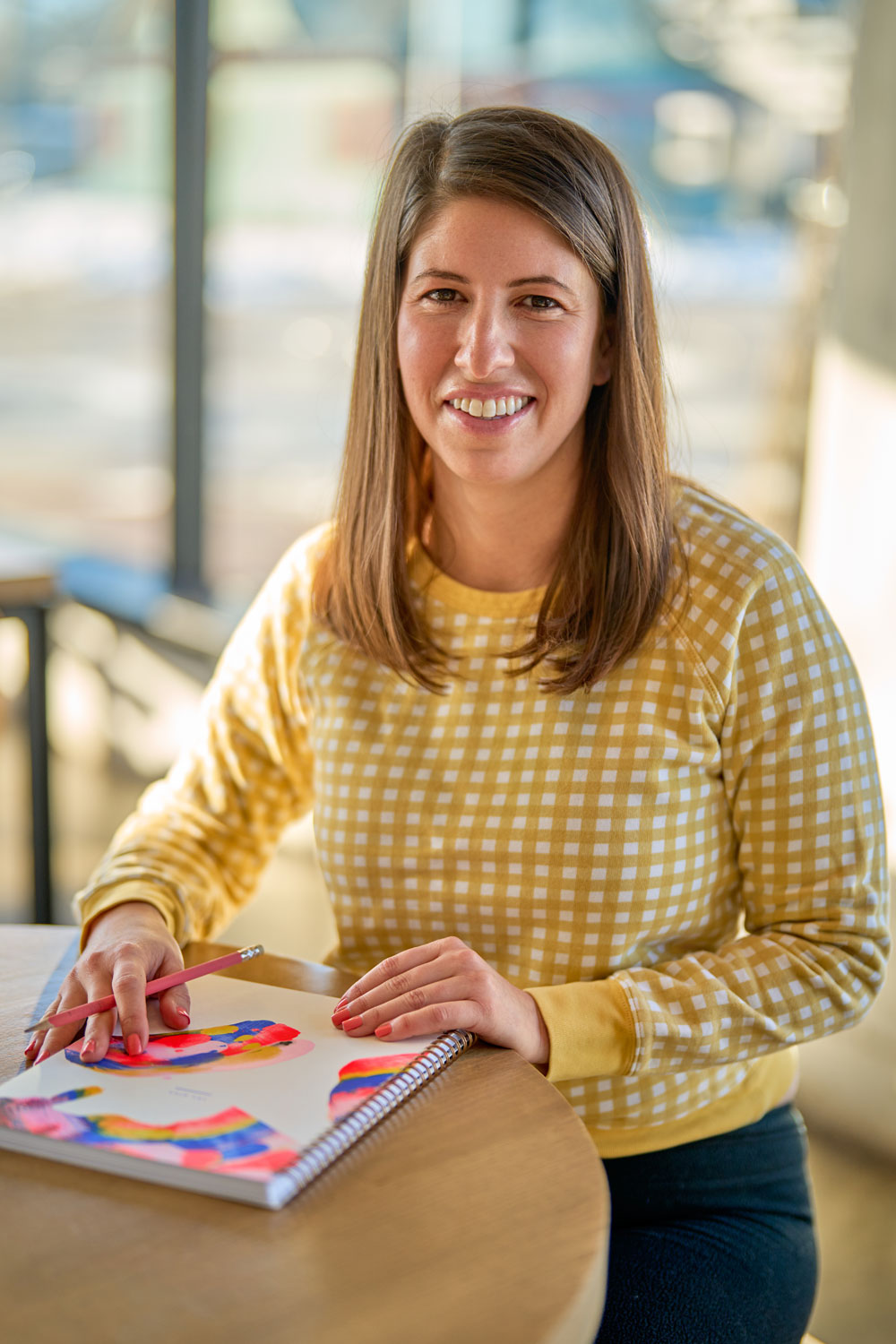Essay: My journey to financial freedom and career independence

By Mollie Giller
Sometimes you learn about compounding interest in the hardest of ways. Despite having a pretty good understanding of my personal finances and how to manage them (or so I thought), at the end of 2019 I found myself underwater in credit card debt, feeling like Sisyphus every time my bill came at the beginning of the month. How did that happen?!
Well, I had an old car, an old house and an old dog, for starters.
I didn’t live extravagantly, but I was working in the nonprofit sector making not much more at 34 than I did at 24. My dog needed expensive medicines, my car and house always had something break (always at the same time, of course). This would happen one month, then the next month, then the next … compounded. Simply put, my monthly expenses grew and exceeded my fixed income.
As a single woman, it’s empowering to think about all I have accomplished on my own – homeownership being the pièce de résistance. But, it goes without saying, when you’re single, you’re on your own. There were many nights I would lie awake, my brain scrambling for ways to figure out what money I could pull from where to pay a bill, pleading to the universe not to throw me any unexpected expenses for the month. I was just grasping and desperate to regain financial footing when there wasn’t any obvious plan B or plan C. After a few attempts at Uber driving and realizing (1) how little money one makes when they’re at the bottom of the hierarchy, and (2) how unsafe that situation can quickly become, I just kept thinking and wracking my brain for other ideas to regain financial stability and health.
To say financial stress takes a toll on one’s mental health is an understatement. We know about the eight dimensions of wellness – financial being one. We know about Maslow’s hierarchy of needs – that when you do not have the essential needs in your life taken care of, it is hard to thrive, find joy or just think beyond the immediate moment.
I’ve realized over time that very little else will have the level of negative impact on me as does financial instability. If you’ve experienced this before, it consumes your waking hours and then steals your dreams and sleep, too. For women in particular, I believe this is even more acute. If you’re single, there aren’t always people or things you can depend on for rainy days and pandemics. If you’re partnered up, it may be that you’re financially dependent on your partner, and we know that can create challenges if a relationship isn’t healthy or safe.
Then my story took a turn. Partly, I just got lucky. Early 2020 (I can say that time and you all know exactly where this is going …) brought the shuttering of hair salons, restaurants, travel, and most of us spent less money, which was helpful for me. The government stimulus checks were an unexpected gift that truly helped me get back into the black and out of the red. I found myself in a new job that, while it didn’t pay much more than the last, allowed me better work-life balance. I could breathe, stop and think, “How do I ensure that doesn’t happen again?”
The first change I made was the way I used my credit cards. The false sense of security with credit was shattered each month when the bill came. Paying for things in real time via cash, an app or a debit card has been a much healthier process for me to enact.
Second (again, I thank the universe), I was introduced to a financial adviser who changed my life. I always thought that people who already have a lot of money are the kind of people who have financial advisers. Wrong! My adviser started showing me where I did have assets, though they weren’t necessarily liquid. She taught me about cash flow (lesson three, there is a better way to live than paycheck-to-paycheck even if you’re not making much), home equity lines of credit, and most importantly, she opened my eyes to other revenue streams I could be working toward. I always thought a side hustle was something for people with a lot of creativity and skill, but there are many opportunities, especially now with websites like Upwork, Etsy and Fiverr, where you can open up clientele outside of Iowa and even the U.S. doing something you enjoy or can make marketable.
I started side hustling, with my adviser’s guidance every step of the way, and the work and clientele grew so much that I could no longer maintain my full-time job and hustle. It was one or the other. I considered the money I was making in my hustle off-limits for any spending and stuck it in a business account (another hack I’ve learned). I used that to pay for all the capital needs one incurs when starting a business and it became my rainy day fund. Just knowing it was there brought me so much peace of mind. And then my adviser worked with me in lockstep during the incredibly scary transition from full-time to self-employment. I could not have done this without her.
I have never, ever, ever desired self-employment, and leaving my job was the scariest thing I have ever done. It is also the best gift I have given myself – financial freedom. The sky is the limit, and as a female, that feels incredibly empowering. In my 10 years working in the local nonprofit sector, I never felt fairly compensated, particularly when I compared my salary and work quality (being in fundraising, it’s relatively objective) to those around me. I am now able to set my own terms for engagement, to take as much or little work as I desire, and I have the processes for managing those dollars responsibly. I can envision, finally, having the life I want and deserve.
This is not to say I am now stress-free. The tumult of this year has created a U-turn with all of the instability in nonprofit funding and the sector as a whole. It’s scary for all of us, whether you’re a consultant or a nonprofit staff member. But I tell myself frequently, “I’ve been here before. I can do this.”
If I could go back in time and tell the Mollies of the past anything, it would be the following:
- It is OK to ask for help (I still struggle with this).
- Get a financial adviser yesterday!
- Trust yourself. You work hard and you will be OK.
I would be remiss not to mention that I have a lot of emotional support around me, and that there are areas of my life that are innately privileged – not everyone has that. My journey may look different from someone else’s and I do consider my network of support to be instrumental in my career. But if I could impart one last thing, it would be that regardless of who you are or what your life looks like, as a woman you should have your own version of financial independence and well-being. Maybe that’s $10 that you put away for yourself each week, maybe that’s a side hustle, and maybe that’s something else entirely. Maybe you are on your own and struggling like I was to see a better path forward.
There are always plan B’s and C’s – it may just take someone you trust to help get you there.
Mollie Giller is the founder and principal of Giller Consulting Group, focused on supporting nonprofits, causes and individuals with fund and organizational development services. She holds a Master of Public Health degree and Bachelor of Arts degree in English, communication and international studies from the University of Iowa. Giller’s entrepreneurship journey began at nonprofits in Des Moines, working in fundraising, charitable investment, and program and community service delivery positions. Community, family, time spent outdoors and advocacy for social justice remain central to her work, her personal life and all of the spaces in between.

